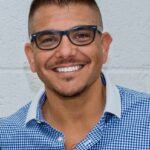
Writing Letters of Recommendation for Gender-Affirming Medical Interventions
Writing Letters of Recommendation for Gender-Affirming Medical Interventions
Information
Date & Time
-
-
Learning Objectives
Participants will be able to:
-
Describe two or more ways to apply an anti-oppressive, gender-affirming approach when conducting assessments.
-
Identify the required components of letters of recommendation for gender-affirming medical care, as identified by the Standards of Care, V-8.
Educational Goal
The educational goal of this workshop is to prepare attendees to write letters of recommendation for gender-affirming care informed by the Standards of Care, V-8, using an anti-oppressive, depathologizing, gender-affirming approach.
Description
This session will equip attendees with the knowledge and tools needed to write letters of recommendation for gender-affirming medical care for trans clients based on the recommendations of the World Professional Association for Transgender Health’s Standards of Care, Version 8, and using an anti-oppressive, depathologizing, gender-affirming approach. The required content of letters will be explicitly discussed, and examples of successful letters will be shown to help attendees with the application.
Target Audience
- Addiction Professional
- Counselor
- Marriage & Family Therapist
- Social Worker
Presenters

Dr. Aydin Olson-Kennedy (he/him) is a Licensed Clinical Social Worker with more than fifteen years of experience delivering mental health support to transgender and non-binary communities. His therapeutic approach and educational methods are guided by anti-oppressive critical theories focusing on intersectionality, power dynamics, and oppressive systems. Dr. Olson-Kennedy specializes in providing therapeutic support and psychoeducation to parents, caregivers, and guardians of trans and non-binary individuals across all age groups. Central to his practice is exploring the experiences and impact of gender dysphoria outside the diagnostic framework of the DSM-V.
Financially Sponsored By
- Trans Youth Care